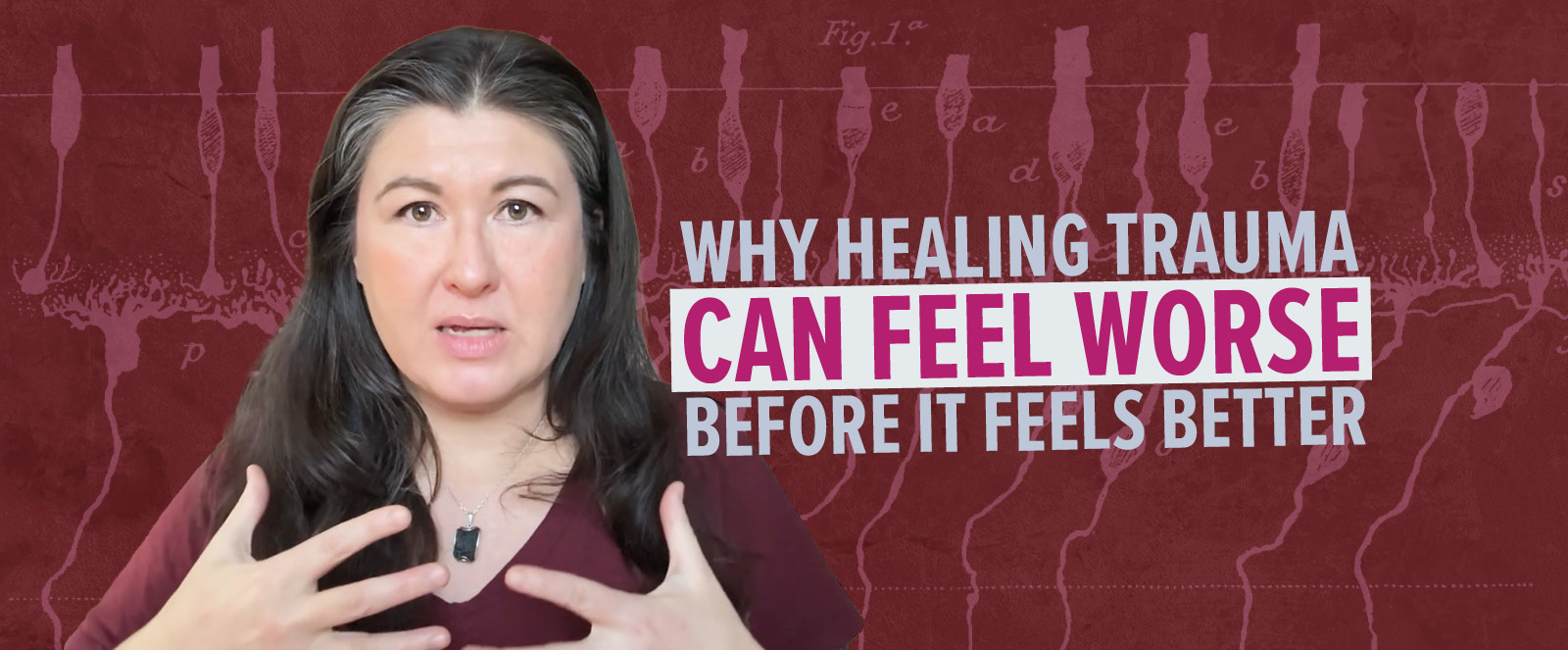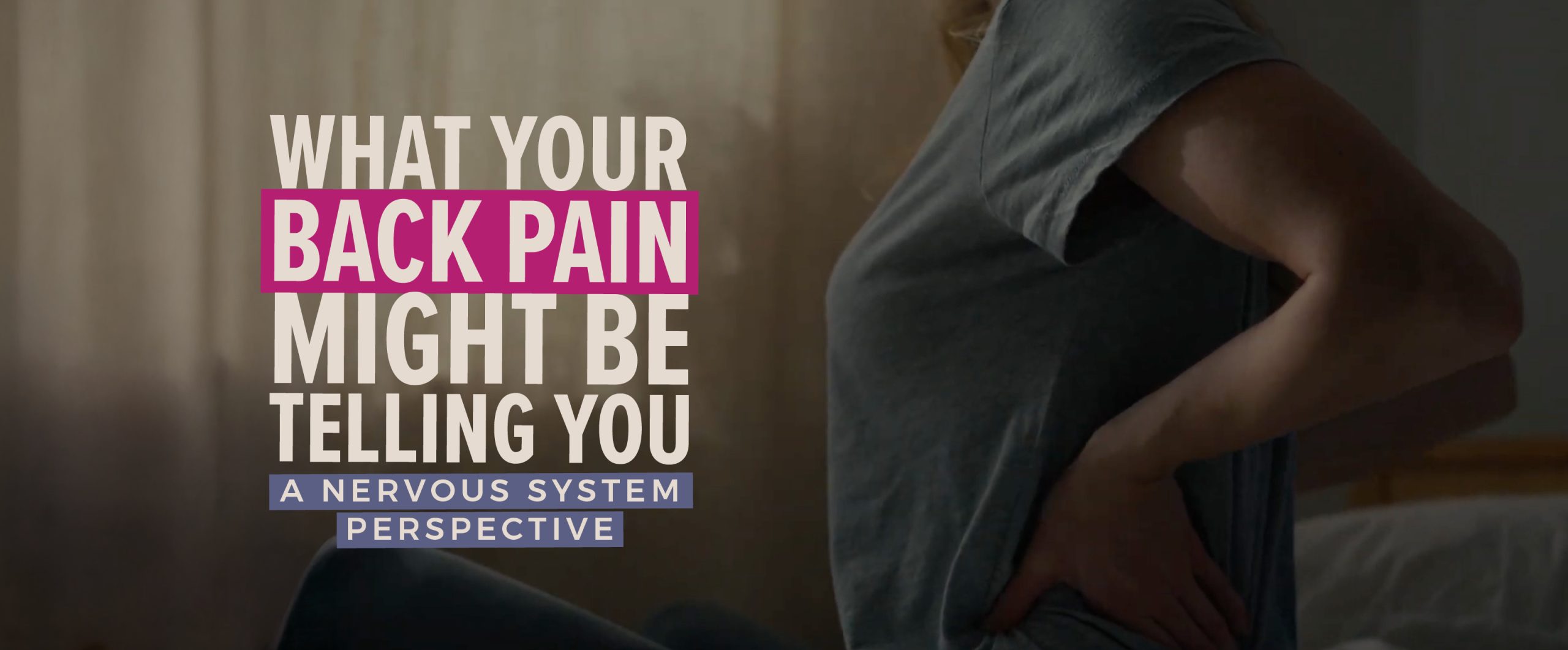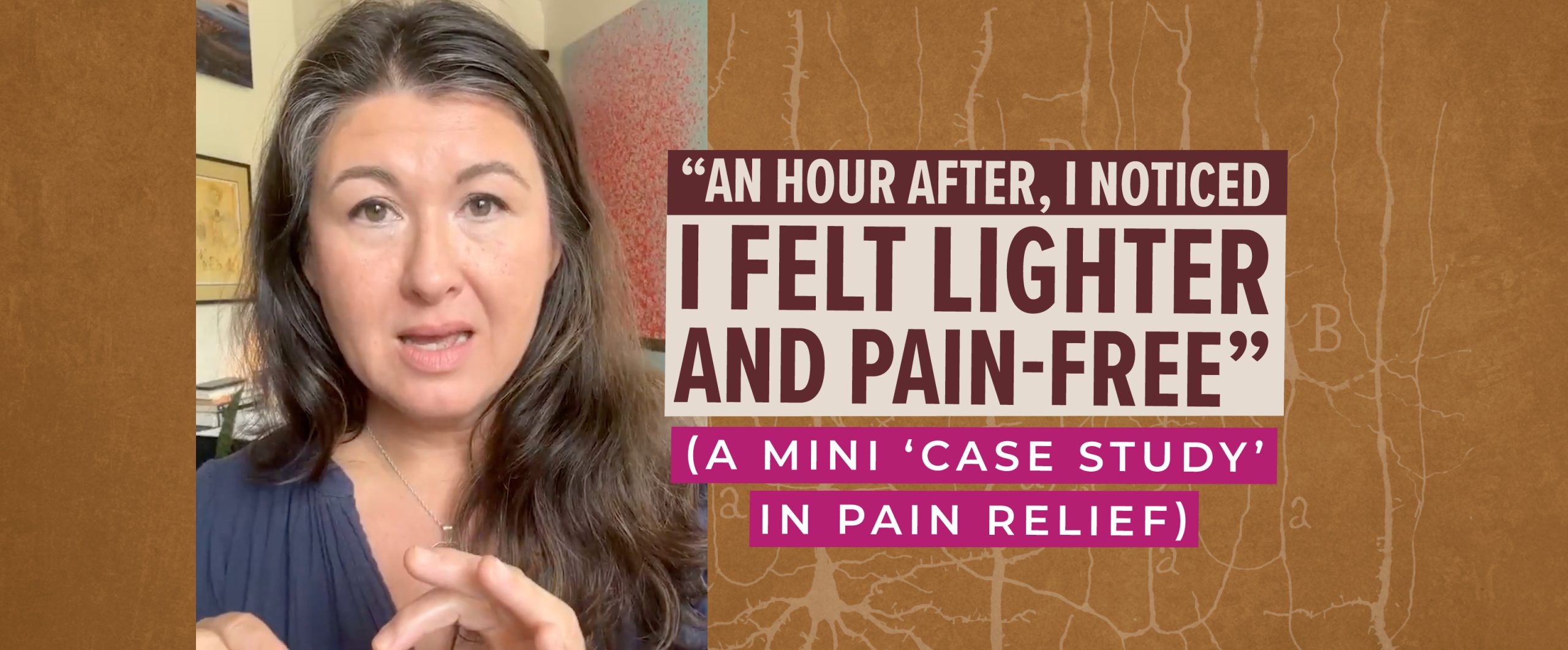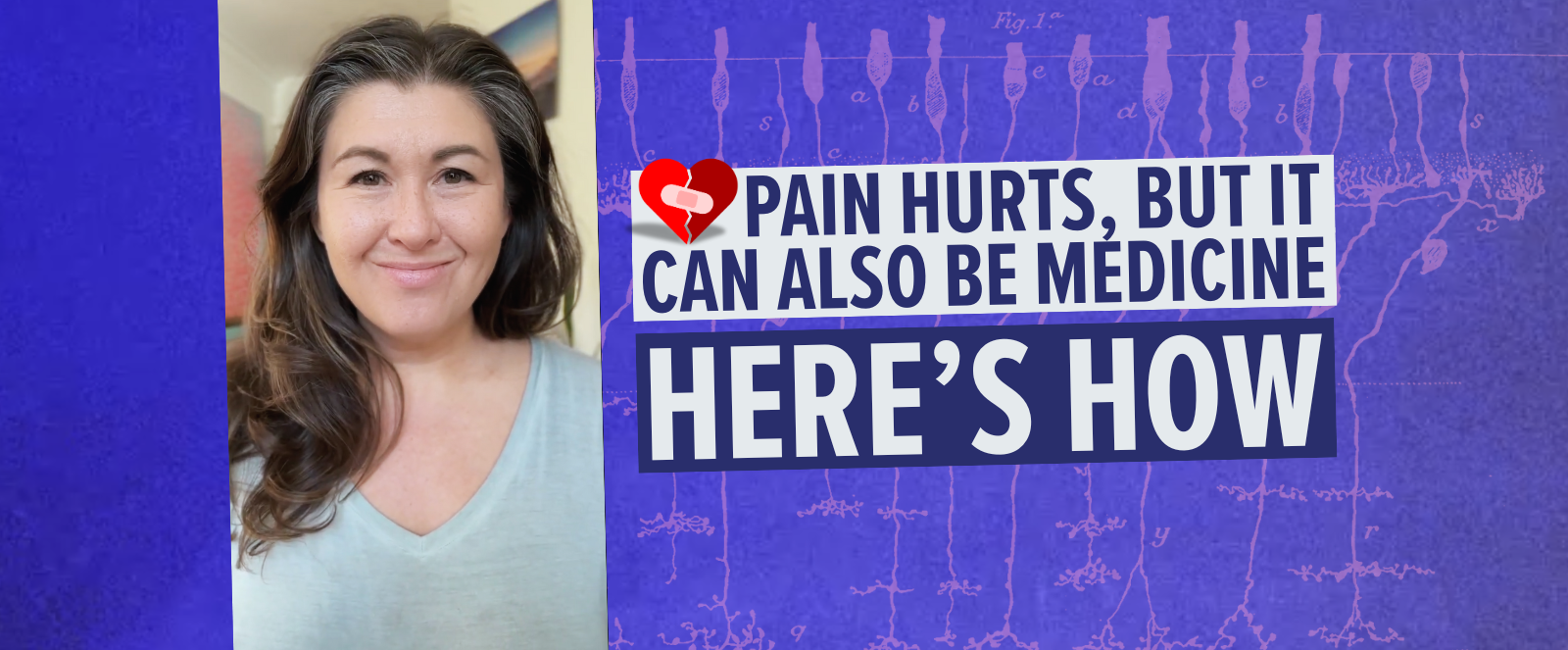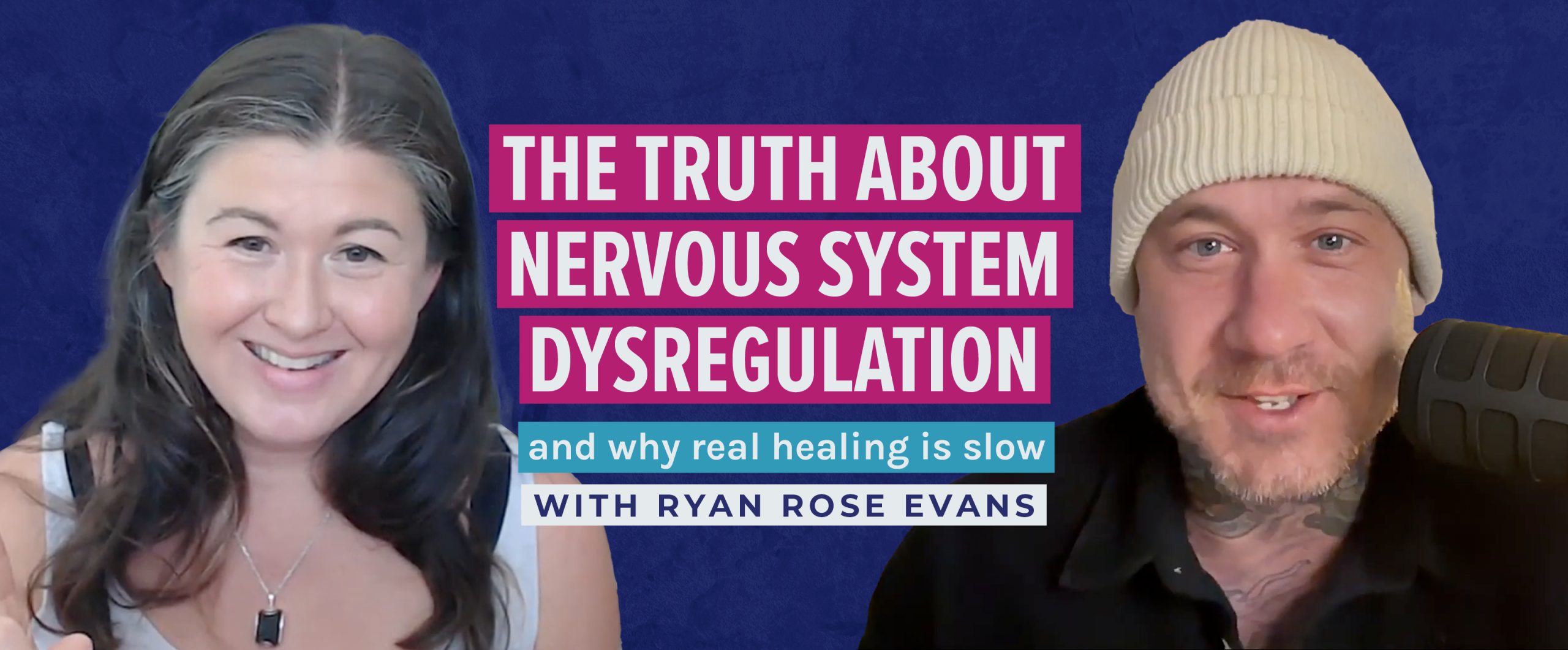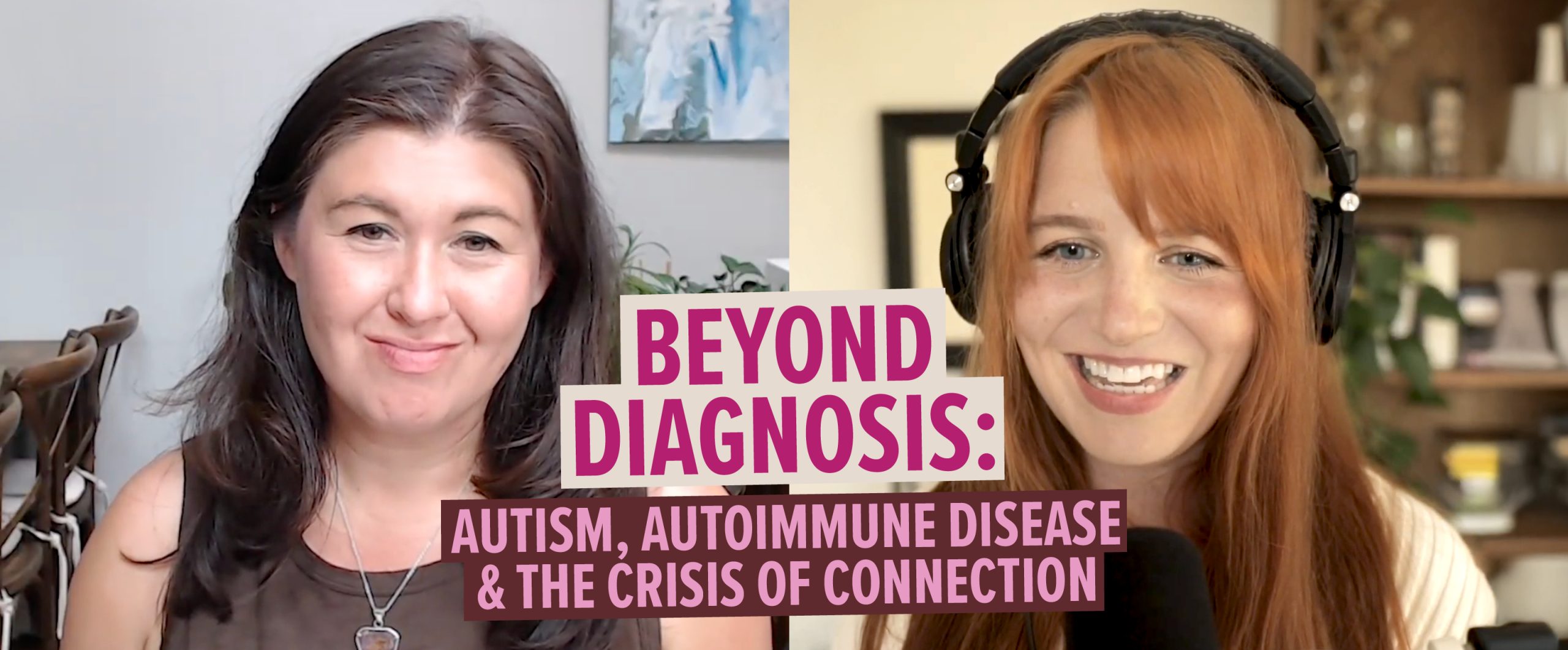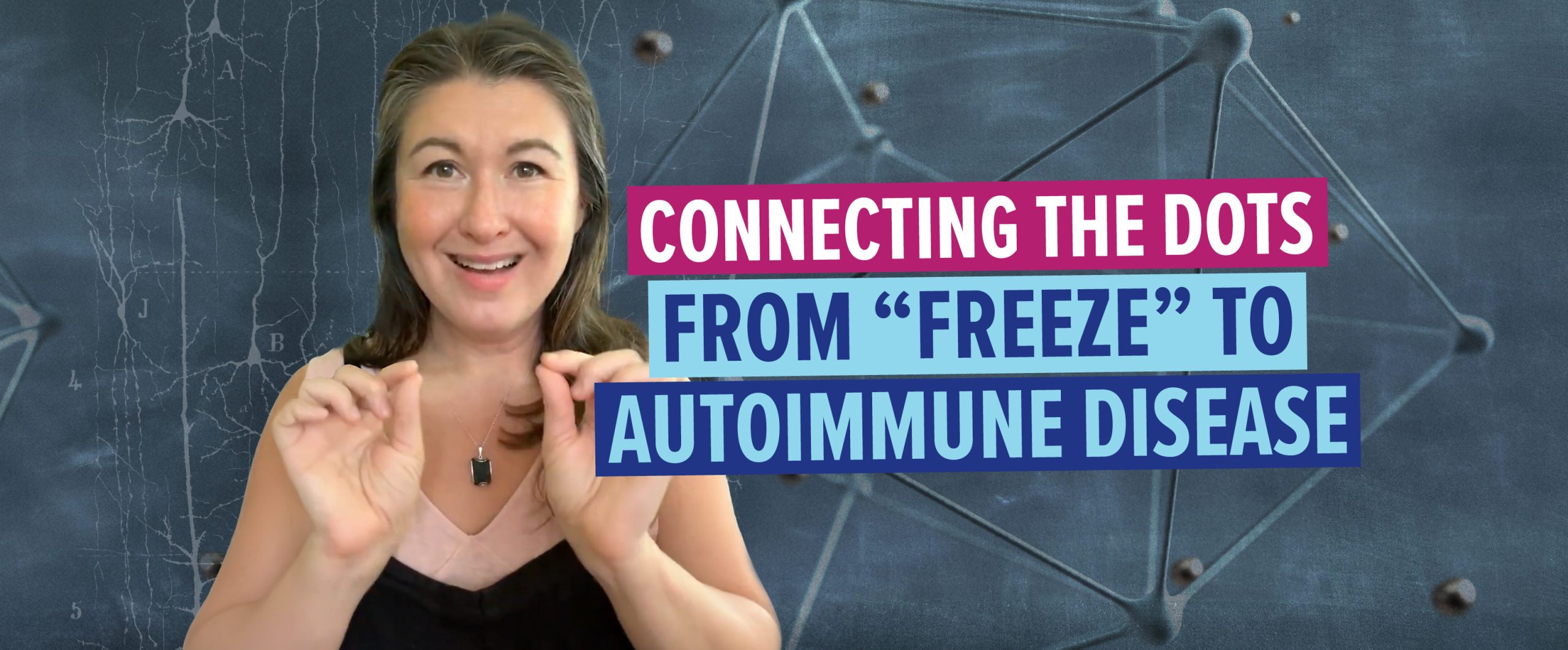Most people think that stress is to blame for many of our disorders, and that if we remove or minimize the stressors in life and add in some healthier substitutes such as improved diet, more physical activity, mindfulness practices like yoga or meditation, and maybe get more sleep or take “stress leave” from work, that all will be well and health will beam through us like sunshine rays.
Of course, all of these pieces are important and will aid in the process towards complete health, but the truth is that it isn’t the stress that is the big issue; it is how our brain and our nervous system have been wired to handle stress.
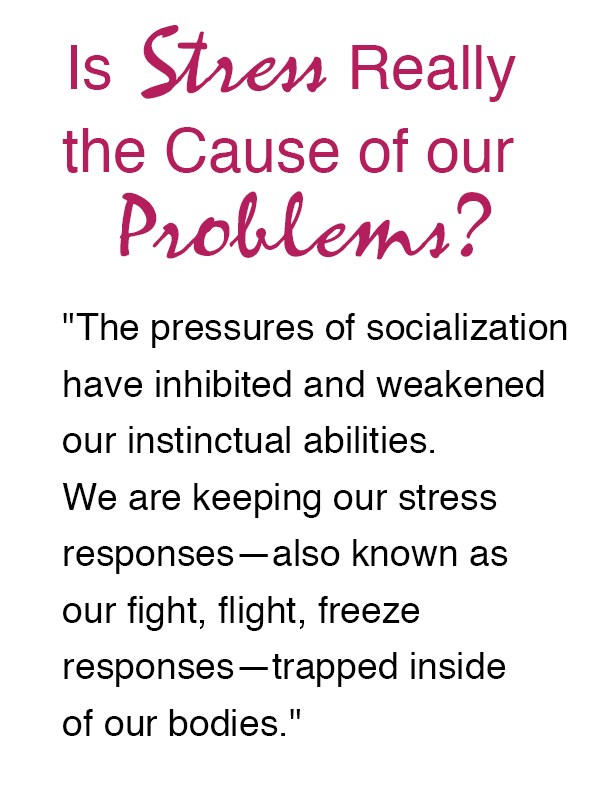
Back in the day of the hunter and the gatherer
Some ten thousand years ago, the stressors and tasks of daily life were very simple.
We needed to find food and shelter and stay safe from predators. If a saber-toothed tiger chased us, we were either eaten or we would get away, and if we got away, the stress of the chase would not stay living inside of us. The ability to let go of stress—the instinct to literally run it off and shake it off, which all animals have—was still intact at that time we allowed ourselves to be the human animals that we still are.
Nowadays, our world is more complex.
The pressures of socialization have inhibited and weakened our instinctual abilities.
We are keeping our stress responses—also known as our fight, flight, freeze responses—trapped inside of our bodies.
Keeping this energy trapped inside makes it harder for us to successfully handle future stress. It’s a vicious cycle that leads to stress-related illness and psychological and emotional difficulties.
Some of the manifestations of held stress in the body are chronic anxiety, autoimmune disease, chronic fatigue syndrome, muscle pain, depression, irritable bowel syndrome, migraine headaches, fibromyalgia and, in the worst-case scenario, post-traumatic stress disorder (PTSD).
If you are struggling with mysterious body pains or psychological upset that won’t resolve even after years of therapy and treatment, if you’ve “tried everything” with little result, then it is likely that the way your body is wired to respond to stress could use a tune-up.

